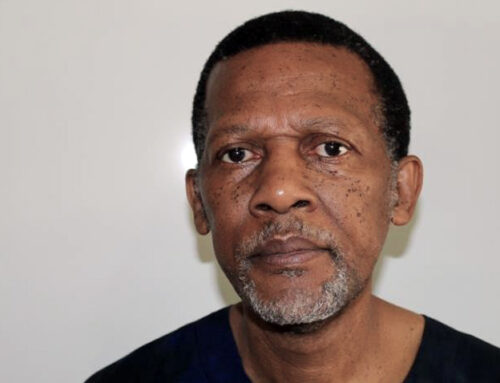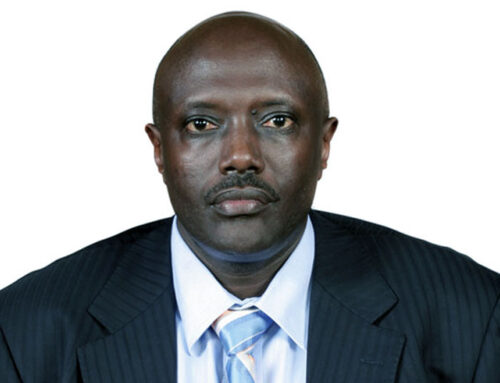
Paul Kagame, Rwanda’s President, has led his country’s successful drive to transform itself from a crippled nation devastated by genocide to become one of the world’s fastest-growing economies. In a speech he gave to the United Nations General Assembly in New York City in September 2014, President Kagame outlined Rwanda’s progress in the two decades since the genocide ended in 1994. He explained, “In Rwanda, we have focused on building accountable governance institutions, and renewing our dignity as a nation. As a result, Rwandans today are among the most optimistic and civic-minded people in the world. For us, stability is not an abstraction; it is a reality that abides in the minds and hearts of the people, and the institutions they build to sustain it. Once achieved, the horizon expands from poverty reduction, to wealth creation, and the attainment of ever higher measures of human development.”
History of commitment to progressive government
Paul Kagame was born in October 1957 in Rwanda’s Southern Province. His family fled to Uganda in 1960 to escape ethnic persecution and the future president spent 30 years there as a refugee. Determined to resist oppressive regimes, as a young man he joined future Ugandan president Yoweri Museveni and his group of guerrilla fighters to launch a war to free Uganda from dictatorship. Under the new government, he served as a senior military officer.
In 1990, Paul Kagame returned to Rwanda to lead the Rwandan Patriotic Front’s (RPF) four-year struggle to liberate the country and end genocide. The RPF defeated Rwandan government forces in July 1994 and subsequently set Rwanda on its current course towards reconciliation, nation-building and socioeconomic development.
Paul Kagame was appointed Vice-President and Minister for Defence in the Government of National Unity in July 1994, and in 1998 he was elected Chairman of the RPF. In April 2000, he became President of Rwanda after being elected by the Transitional National Assembly. In general elections in August 2010, he was elected President for a second term.
International recognition for leadership

President Kagame has received international recognition for his leadership in promoting peace-building and reconciliation, economic development, good governance, human rights and women’s empowerment, education and technological advances. President Kagame currently serves as co-chair of the UNSG’s Advisory Group on Millennium Development Goals and as co-chair of the International Telecommunications Union’s Broadband Commission.
Paul Kagame is strongly committed to positioning Rwanda as a productive member of the regional and international communities.
In a speech he made at Chatham House, London, in October 2014, he commented on Rwanda’s role on the global stage. He said, “Rwanda is always in the spotlight, because our tragic history became closely intertwined with the reputation of the international system itself. There is a positive side to the scrutiny. It is helping to bring the story of Rwanda’s recovery to wider attention, and generate curiosity to know more about how exactly we went about solving our problems.”
The President then noted just how far Rwanda has come since the genocide ended. He said, “Rwanda’s economic and social development is built on political development and strong institutions. We have emphasised the importance of consensus-building, national unity, and accountable public institutions. A strong capacity for popular mobilisation at all levels of society was also essential, as we worked to transform mindsets. Everyone matters. Each citizen needs to be convinced of the direction for change, and each one must be afforded the opportunity to offer input to the process.”
Emphasis on nation-building
In the late 1990s, President Kagame hosted meetings every Saturday in the President’s Office where representatives from all Rwanda’s political parties, even those responsible for the genocide, as well as from business, academia, the legal sector and civil society, met to determine the causes of the Rwandan tragedy and to reach a consensus about how to move forward. President Kagame noted in his London speech, “Since then, the fight against corruption and abuse of office has been firm and consistent. Well-organised political organisations are an important part of nation-building. The RPF and its coalition partners came to the table with a well-developed programme of action, derived from progressive ideals. But the outcome of these dialogues reflected a wide national consensus, not just our own.”
The Kagame administration’s approach has achieved undeniable successes. As the President points out, “Inclusive politics and accountable governance are the reasons why Rwanda is not just secure, but stable. They explain why external financing for Rwanda’s public institutions produces measureable development results, year after year. They explain why Rwandans express high levels of trust and satisfaction with the quality of governance in independent surveys. And just as crucially for a society that was as divided as ours, Rwandans increasingly trust each other.” He added, “Rwanda’s successful Eurobond offering in London in 2013 showed that trust in Rwanda is shared in financial markets.”





